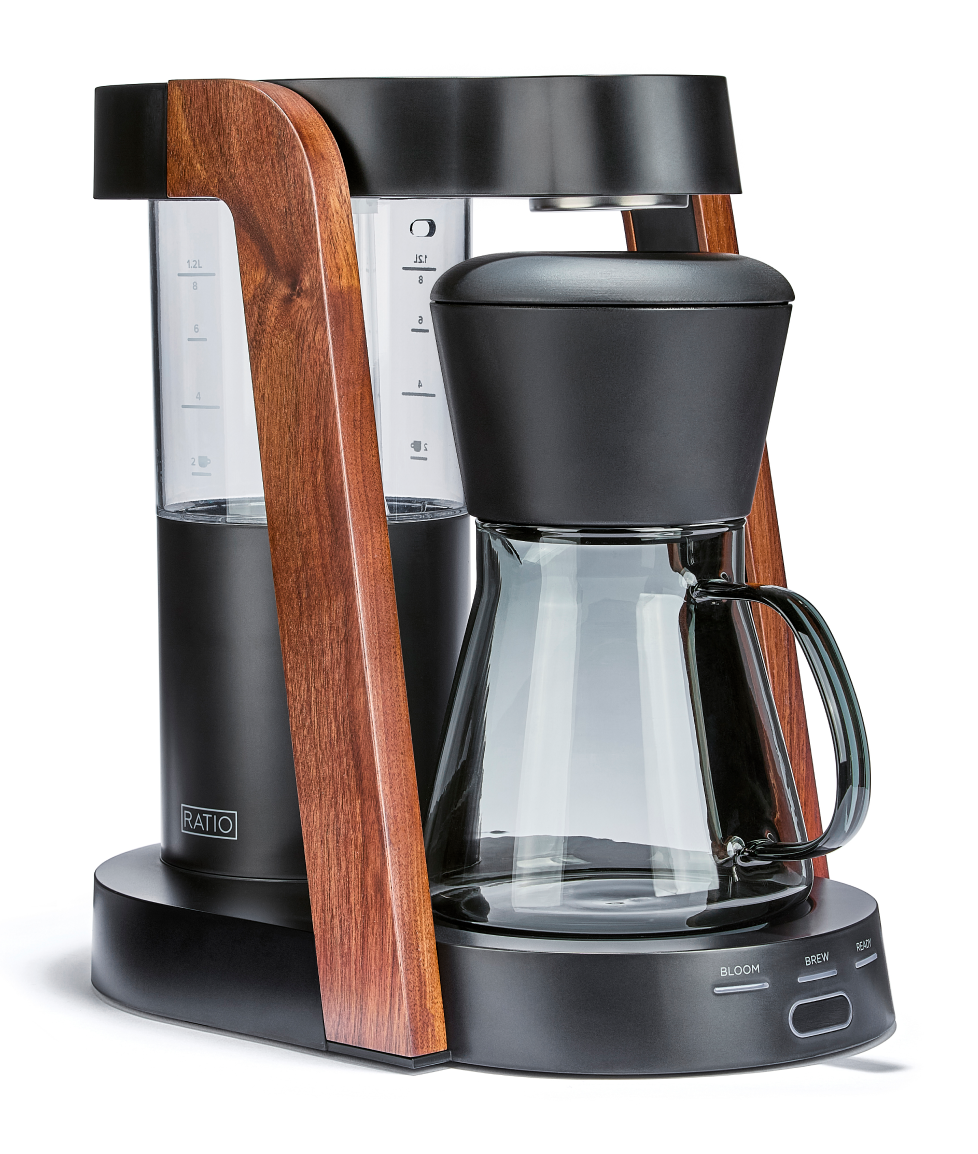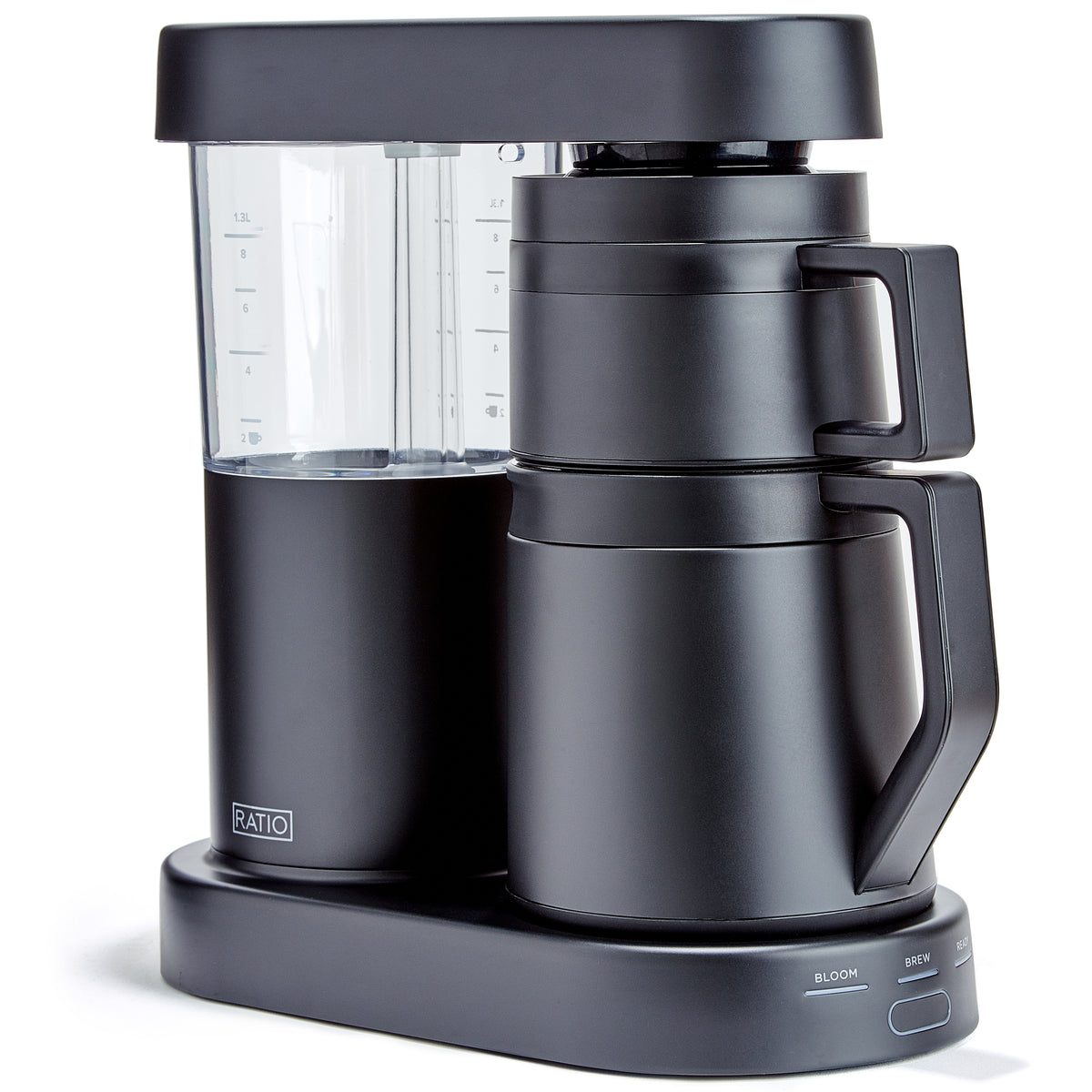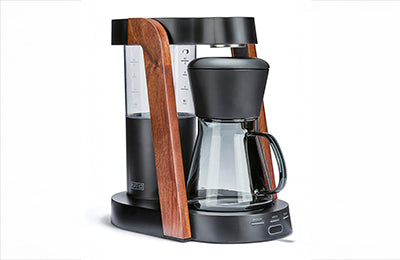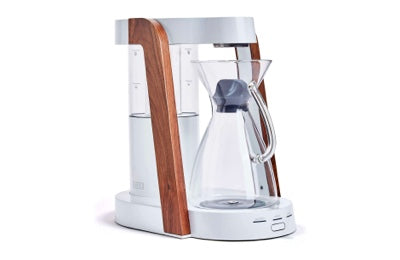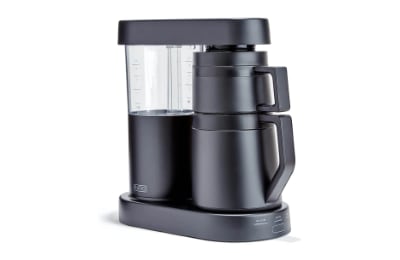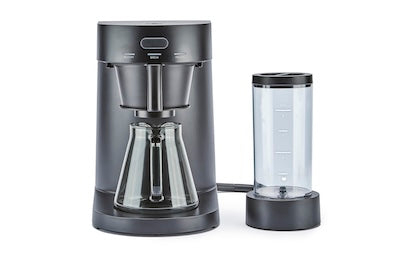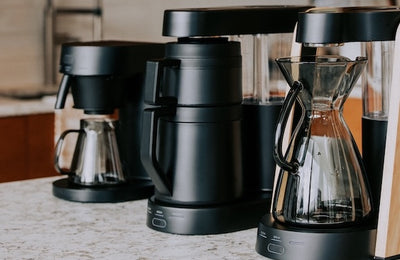A Discussion with Portrait Coffee (Part 1)
In the first of a three part series about Atlanta’s Portrait Coffee, we talk with co-founder John Onwuchekwa about how the company got its start. We discuss how he stumbled into drinking coffee, connected with his co-founders, and created a compelling narrative that has since attracted coffee aficionados, and those who simply want to see more equity exist in the coffee industry at large, and in the Historic West End of Atlanta. Read on, and stay tuned for parts two and three coming throughout this month.

Could just tell us a little bit more about how Portrait Coffee came to be?
So Portrait really came to be out of a burden and us just trying to create a footprint of us I think in a place where it felt like a lot of people were stepping, but people like us weren't really stepping. And what I mean by that is this, you know, I got into coffee about a decade ago and it was just out of necessity. I had a job where I would have to be up really late, and get up really early the next morning. I hated coffee my whole life and my parents left some Folgers instant crystals at the house and I told my wife, ‘yo, you just gotta make me something, I'm dragging.’ Then at that point I'm like, ‘oh, it's not as bad as I remember it.’ So I started to drink it, and the more that I drank it, like anything else that I do, I just started to nerd out and I found out that there's this whole specialty coffee world that goes on.
So, probably about 10 years ago, I started to travel around the U.S. and speak at places and things like that. Whenever I would touch down, I would just put on Twitter, ‘hey, where are the best coffee shops?’ From Portland to LA to Chicago, all of that, that was the thing I did, and every place that I walked in I noticed something interesting -- It was that I would be in all these specialty shops, and I would be the only person that looked like me. So I was just like, ‘where are all the Black people in this space that like coffee?’ I basically got to a point where I felt like, oh maybe there aren't any. Maybe I'm going to be like the Tiger Woods of this thing. Like maybe this isn't our gang.
Then basically after I couldn't find anybody, I started to just go to books, and read a bunch of books, and it was in those books that I discovered that coffee grows along the equator -- it was discovered in Ethiopia. Coffee literally grows where Black and brown people grow, and that just kind of infused this sense of purpose, like maybe there's something more than just me wanting to be in a room with a bunch of people that look like me that enjoy coffee, maybe there's some other burden or problem that we need to solve.
In 2018, Aaron and I link up. We both live here in the West End of Atlanta, and we linked up based on our shared experience of coffee. And, as we sit and talk, he shares that he's been in coffee for 10 years, and what really did it for him was he went on a trip to Rwanda, and it was with a group that talked about all the good that they did in coffee, and he realized that although the Rwandans owned the land and the coffee, and they did all the hard work, the second that there was a chance to make any type of livable wage or margin off of the coffee they were cut out. So this group owned the washing stations and from there it went to exporting, importing, roasting, retailing and by the time the coffee hit the shelves, and it was those $18.00 bags, it really left the hands of the Black and brown folks that owned it a long time ago, and they weren't better off as a result of it. So that just kind of put a bug in my head, a burden, that I feel like I couldn't really shake, we couldn't really shake, and we saw something similar as it relates to the West End.
I live here in the West End. The West End was one of the hardest hit ZIP codes with the mortgage fraud that went on in 2008 and 2009. So basically, it is a community that 10 years ago [was full of] poor, disenfranchised Black and brown folks, drugs, prostitution, vacant homes, the whole nine. So we actually moved into the West End with the hope of ‘hey, how do we rebuild, or how do we help to rebuild a community like this?’ And we just felt like all right, holistically right, there's got to be a spiritual component, an economic component, all of that, and this is what really did it for us.
I'm going to share with you a little bit more about the Atlanta back story, and I promise that I'm going to bring it all full circle.
In Atlanta, we've got a train station -- our train is called MARTA. And it's this train that runs south to north, and east to west. When I first moved to Atlanta 12 years ago, I parked my little Ford Explorer Sport, and I said, ‘yo, I'm just gonna ride the train everywhere so that I can get a sense of what it's like, street level.’
So, there would be times where I would get on the train at the southernmost train stop, and I would just ride all the way to the northernmost train stop. I would ride, just chillin, like this sociological let me look and get a lay of the land. And when I did it two things popped out. There are two noticeable things -- that when you're driving the train from south to north, the inside of the train changes and the outside of the train changes. Here's what I mean -- at Airport Station you get on that train and the train is packed and it is Black and brown people. The train is Black and brown. As you go through the southern neighborhoods in Atlanta, that train stays Black and brown. The further that you go north though, here's where I mean, the inside of the train changes with each stop that you go north, more and more Black and brown folks get off the train, and more and more white folks get on the train. So by the time you hit the north, the racial dynamics of the train flip flops so the train goes from all Black to all white. So, it's not just the inside of the train that changes the outside of the train changes -- with each train stop that you go up north. The economic conditions, they don't only improve, they skyrocket. So it's this weird thing where the train literally creates this parable of the city -- that Black and brown folks are getting off of the train before they get a chance to take advantage and enjoy the economic opportunities of a city that they helped build, and what we found out is if you take the coffee supply chain and put it right on top of the MARTA train line, it's the exact same thing. Coffee grows in that southernmost train stop, across the equator, but with each stop that you go north, there's less and less Black and brown folks, and more white folks. To the time where you're selling these $18.00 bags of beans off the shelf, and it's left the hands of Black and brown folks a long time ago.

This was the fall of 2019, and we were like, alright, we think we can change this if we break in at the top in roasting and retailing then there is a way where, if we can do that well, then we can basically work our way back down the supply chain and empower and encourage and help folks. And more than that, we can bring coffee -- this quarter of a trillion-dollar industry -- into a community like the West End.
Google's not fighting to come here to set up their HQ, Apple, nobody like that, we live in an opportunity desert. It's not just that there aren't jobs, there are no careers in the West End that will sustain people with a wage to be able to buy homes here as gentrification started to take place. We felt like, alright we can set up our HQ here and basically create an ecosystem where we can not only just create jobs but create careers for the community. Portrait really comes from the desire that we just want to change the picture that comes to people's minds when they think of specialty coffee.
When slaves first learned how to read and write the very first thing that they would give their time to write were called narratives of their life. So you'll see like the narrative of the life of Frederick Douglass, and basically they would write about their lives because the people who could read and write at the time that kept them from being able to read and write, were writing history, and they were leaving their contributions out. So they were saying, ‘by writing about what we've done ourselves, we insert ourselves into a picture of history that we've been photoshopped out of.’ So that was our goal. We want to create a picture. We want to change the picture that comes to mind when people think of specialty coffee.
 Ratio Eight S2
Ratio Eight S2
 Ratio Eight Original
Ratio Eight Original
 Ratio Six
Ratio Six
 Ratio Four
Ratio Four
 Compare Machines
Compare Machines
